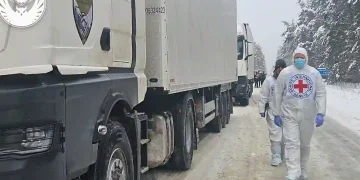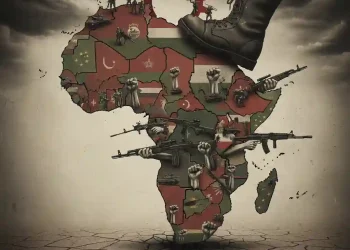Brigadier-General Maikano Uba, Nigeria’s senior security officer, was executed by ISWAP terrorists somewhere in the Northeast. His body was never recovered. His family never got to say goodbye. But his death carried a message that echoed through every terrorist camp in Nigeria; the military could be beaten.
Within days, something shifted. Armed groups that had been operating with caution suddenly moved with brazen confidence. On Monday, November 18, bandits stormed Government Girls Comprehensive Senior Secondary School in Kebbi State before dawn. Vice-Principal Hassan Makuku died trying to shield his students. Twenty-four girls disappeared into the bush.
Military intelligence had warned of a possible strike days before. Yet the bandits attacked anyway, seemingly unfazed by the security forces supposedly on alert.
Three days later, the peace of a thanksgiving service at Christ Apostolic Church in Kwara State was shattered when armed gunmen stormed the building and abducted more than 35 worshippers. What made the incident even more disturbing was that the attackers operated openly for nearly an hour while police and military personnel were stationed nearby, raising serious questions about the security response.
Just the day before, on Friday, November 21st, at around 3 pm, the situation worsened when suspected Fulani herdsmen launched an attack on a 24-hour quarry operation. During the assault, marked by sporadic gunfire, they kidnapped two Chinese workers who were on site.
The pattern was clear. These weren’t random attacks. They were calculated moves by groups that had just learned the most dangerous lesson: victory was possible.
The International Trigger
The timing couldn’t have been worse. In late October, U.S. President Donald Trump began posting on social media about a “Christian genocide” in Nigeria. He threatened military intervention, ordered the “Department of War” to prepare for “possible action,” and designated Nigeria a “Country of Particular Concern.” He also warned of suspending U.S. aid.
For terrorist groups watching from their hideouts, Trump’s words were a gift. International military intervention, previously theoretical, suddenly seemed possible. The Americans might actually come. That’s when the abductions intensified.
“Recent pronouncements from the United States have inadvertently emboldened opportunistic violent groups seeking to exploit international narratives and make bold statements by attacking soft targets,” Nigeria’s Secretary to the Government, George Akume, said.
The New Strategy Exposed
A senior security analyst, speaking on condition of anonymity, laid bare what intelligence officials now believe is happening: “These terrorists understand that if American military forces intervene, they need protection. They’re deliberately kidnapping these civilians, the schoolgirls, the church members, to use them as human shields. If the U.S. moves militarily, these hostages become their insurance policy. No one can launch an operation knowing civilians are caught in the crossfire. It’s a calculated strategy born from desperation, but it’s terrifyingly effective.”
The analyst explained further: “After the general’s execution proved they could defeat military forces, these groups realised they needed something to prevent a full-scale military response. Hostages became that shield. With dozens of captives scattered across hideouts, any military strike, whether by Nigeria or internationally, becomes exponentially more complicated.”
The Human Cost
Twenty-four schoolgirls are somewhere in the bush tonight. Parents haven’t slept properly since they disappeared. They check their phones compulsively, hoping for any sign their daughters are alive.
Thirty-five church members are in the darkness. A pastor watches helplessly, wondering if he’ll ever see his congregation again. Families sit at dinner tables with empty chairs, unable to eat, unable to stop waiting.
The uncertainty is its own torture. Not knowing if your child is alive. Not knowing what’s happening to her. Not knowing anything except the weight of that not-knowing, pressing down every moment of every day.
The Impossible Dilemma
President Tinubu cancelled foreign trips and ordered security agencies to rescue the hostages. But military commanders face an impossible choice: launch a major operation and risk civilian casualties, or move slowly and give terrorists time to reorganise and move captives deeper into the bush.
If Nigeria moves aggressively, international media will broadcast images of civilian casualties. Trump, who has already criticised Nigeria’s security, will have ammunition for further criticism. If Nigeria moves slowly, the terrorists buy time. They prove to other armed groups that abduction is an effective survival strategy.
There is no good option.
The Larger Danger
If this hostage strategy succeeds, if captives are released and terrorist groups survive to strike again, every armed gang in Nigeria will adopt the same tactic. Mass abductions will become standard practice. Hostages will become the primary currency of conflict.
Nigeria’s security crisis will transform into something infinitely worse.
The clock is ticking. The real test comes now.





















